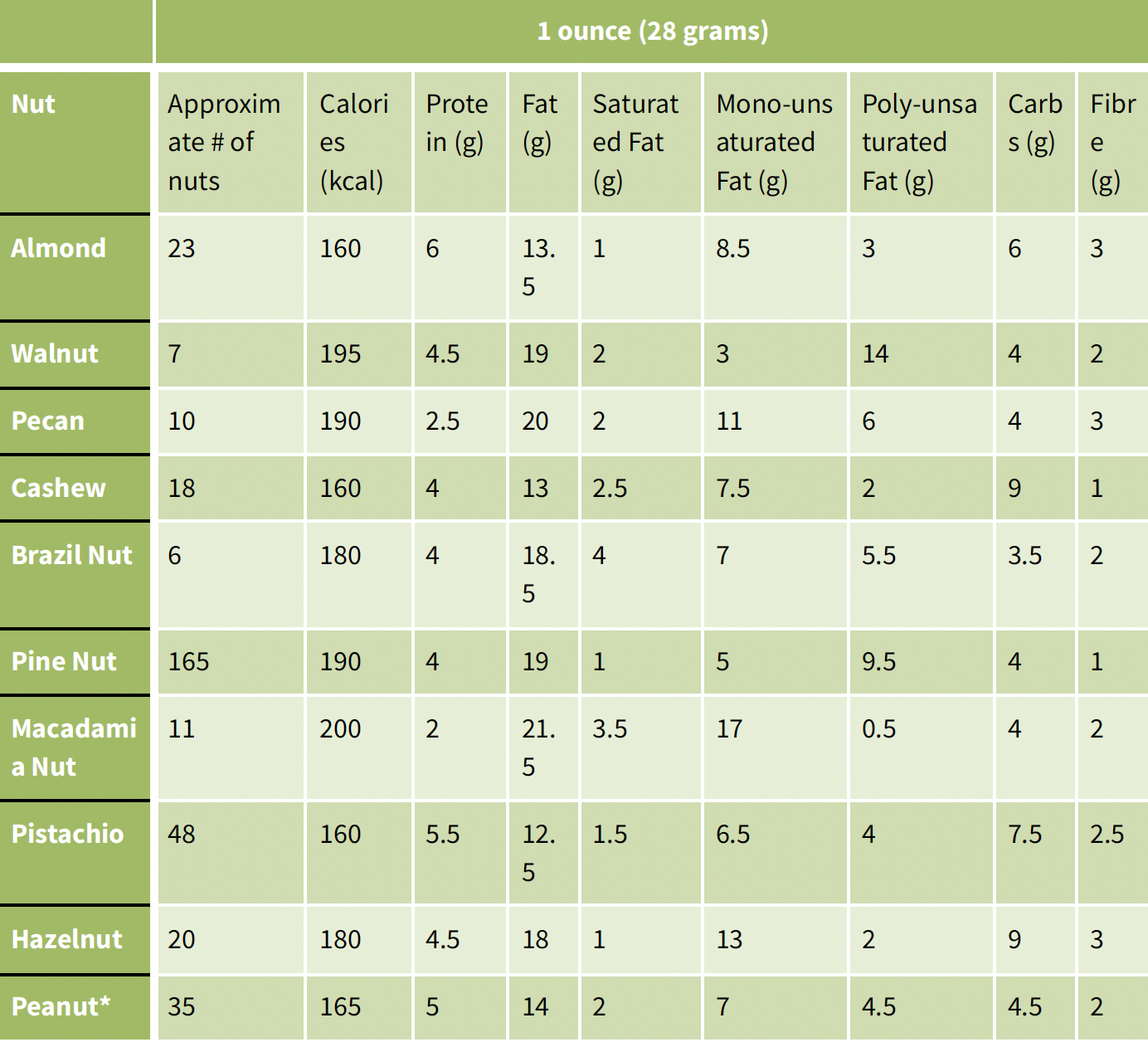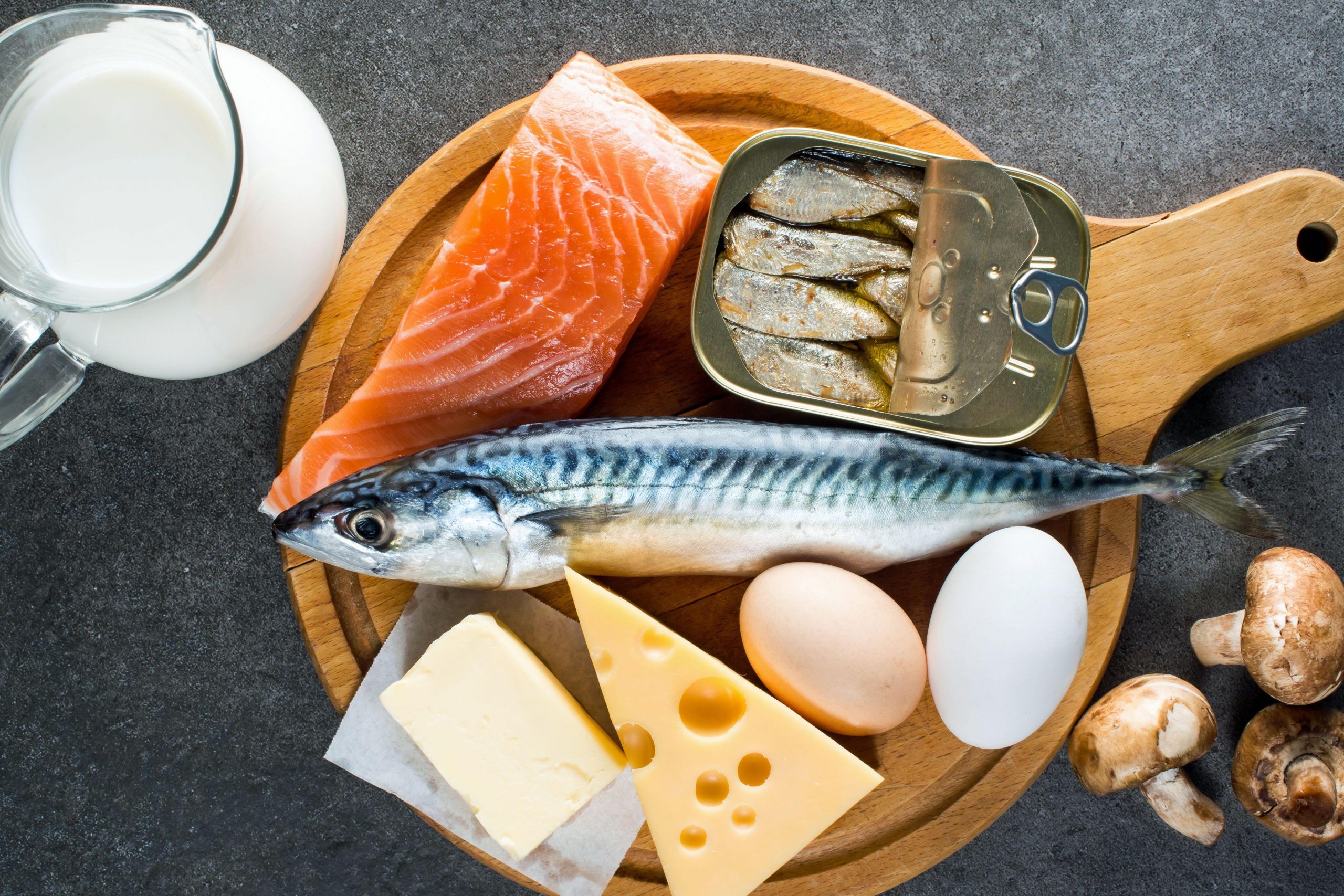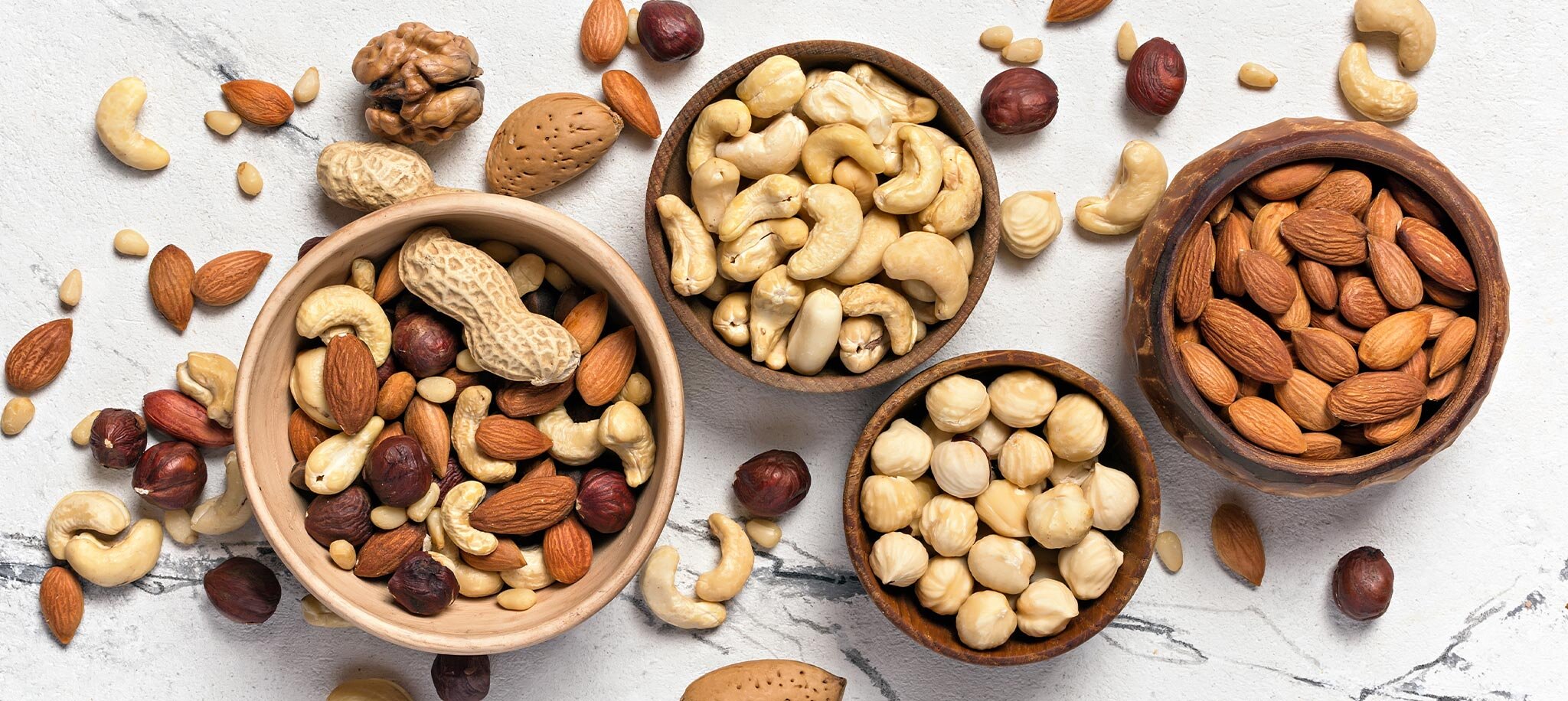Fats & Oils
We Need Fats!
Fats, consumed in moderation, play a vital role in a healthy diet. They contribute to around 20-35% of our daily calorie intake. Not only do they enhance the flavour and appeal of food, but they also provide us with energy.
Fats are essential for maintaining healthy cells, insulation, protecting internal organs, and serve as our long-term energy storage. Certain vitamins, such as A, D, E, and K, are fat-soluble, meaning they require fat for absorption and are stored in fatty tissues.
Fats can be obtained from animal and plant sources. Animal fats include beef, chicken, lamb, pork, salmon, butter, and dairy products. Plant fats encompass olive, palm, rapeseed, safflower, sunflower, avocado, soybean, and coconut.
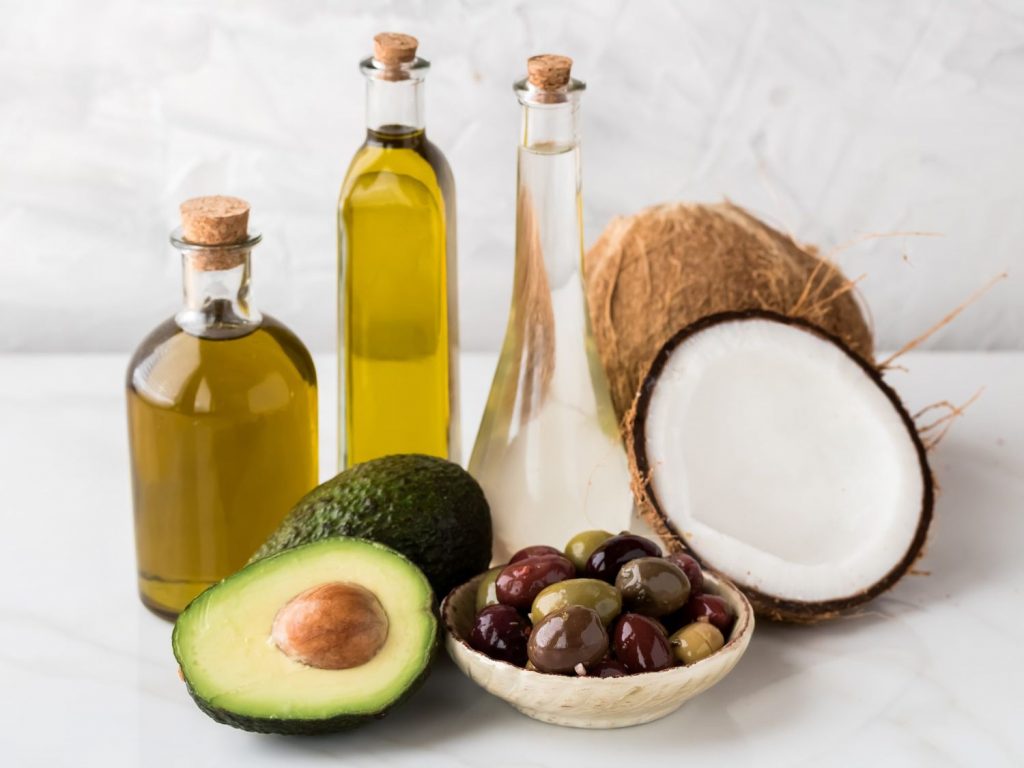
Some Fat Facts:
-
Fats should contribute to around 20-35% of our daily calorie intake.
-
Fats are twice as high in calories as protein or carbohydrates, so go easy on them!
-
Oily fish are so good for you! Think "SMASH" - Salmon, Mackerel, Anchovies, Sardines, Herring.
Nutrition Info
How Fats are Digested
When we eat fats, our body goes through a series of processes to digest and utilise them. Here's what happens:
Mouth: When we chew our food, the fats start to turn into a liquid. There is an enzyme called lingual lipase in our mouth that helps break down some of the fats.
Stomach: After we swallow our food, it goes to our stomach. There, the fats are mixed and broken down into smaller pieces. The stomach has another enzyme called gastric lipase that continues to break down the fats.
Small Intestine: The real action happens in the small intestine. The gallbladder releases something called bile, which helps to break the fats into even smaller pieces. These small pieces mix with special enzymes that break them down into tiny parts called fatty acids and glycerol.
Absorption: These tiny fatty acids and glycerol go through the walls of our intestine and enter our bloodstream. From there, they travel to different parts of our body.
Energy or Storage: Our body can use these tiny parts as a source of energy. They can be used right away or stored in our body for later when we need energy.
So, fats go through a journey of breaking down and turning into tiny parts that our body can use. It's important to remember that some fats are healthier than others, so we should try to eat the good fats and not have too much of the not-so-healthy ones.
Unsaturated Fats
Unsaturated fats are a healthier type of fat found in plant-based foods and liquid oils. They have a different structure compared to saturated fats and trans fats.
There are two main types: Monounsaturated fats and Polyunsaturated fats.
Monounsaturated fats are in foods like olive oil, avocados, nuts, and seeds.
Polyunsaturated fats include omega-3 and omega-6 fatty acids, found in fatty fish, flaxseeds, walnuts, and vegetable oils.
Including unsaturated fats in our diet is good for our health. They can improve heart health by lowering bad cholesterol and reducing the risk of heart disease. Unsaturated fats also provide essential fatty acids that are important for our brain and overall body function.
To add more unsaturated fats to our diet, we can choose oils like olive or rapeseed instead of butter. Snacking on avocados, nuts, and seeds is another way to increase unsaturated fat intake. However, it's important to remember that all fats have calories, so moderation is key.
In summary, unsaturated fats are a healthier choice and can benefit our heart and overall health. Including them in our diet through plant-based foods and oils is a good idea, but we should still watch our overall calorie intake.
Essential Fats & Oils
Essential fats are a type of unsaturated fats that are really important for our health. Our bodies can't make these fats, so we need to get them from the food we eat. There are two types of essential fats:
Omega-3 – oily fish, soybeans, nuts and seeds (particularly flax seeds and walnuts)
Omega-6 – vegetable oils, meat, eggs, avocados, nuts and whole grains
These fats are crucial for building cell walls and are especially good for our eyes and heart. Omega-3 fats have some additional benefits too - they help protect our nerves, lower blood pressure, support our immune system, and reduce inflammation.
- The UK Food Standards Agency recommends eating 2 x 140g portions of fish a week, one of which should be oily to improve omega 3 intake. Fish highest in omega-3’s include:
- Salmon
- Mackerel
- Anchovies
- Sardines
- Herring
A really easy way to remember the above is the acronym 'S.M.A.S.H"
- When buying Tuna look for low mercury, low dioxin and PCB-free fish options.
- If pregnant or breastfeeding, the NHS advise you to avoid shark, marlin and swordfish and consume no more than two 140 gram servings of fish per week.
- Avoid buying breaded fish as manufacturers usually add saturated and trans fats to the breading.
- The World Health Organisation recommends that we consume a ratio of Omega-3 to Omega-6 fats of 1:3.
Saturated Fats
Saturated fats are a type of fat found in foods like meat, butter, cheese, and coconut oil. They are usually solid at room temperature. Eating too much saturated fat can raise bad cholesterol levels and increase the risk of heart disease.
Coconut oil is a type of saturated fat that is absorbed and immediately transported to the liver for energy rather than fat storage. Because of this characteristic, it is generally safe to use moderate amounts of coconut oil in cooking.
But to keep our hearts healthy, it's important to limit the amount of saturated fat we eat. We can do this by choosing leaner meats, using less butter and cheese, and opting for healthier oils like olive or rapeseed oil instead of coconut oil.
Remember, it's about finding a balance. We don't have to completely avoid saturated fats, but we should try to choose healthier options and not eat too much of them. According to the NHS:
- The average man should eat no more than 30g of saturated fat per day.
- The average woman should eat no more than 20g of saturated fat per day.
Cholesterol
Cholesterol is a waxy, fat-like substance that is found naturally in our bodies. It plays important roles in building cell membranes, producing hormones, and aiding in digestion. Our bodies produce cholesterol on their own, but we also get it from the foods we eat, especially those high in saturated fats and trans fats.
There are two kinds of cholesterol: "bad" cholesterol (LDL) and "good" cholesterol (HDL). Bad cholesterol can build up in our arteries and cause problems like heart disease and stroke. Good cholesterol helps remove the bad cholesterol from our bloodstream, reducing the risk of heart disease.
We get cholesterol from the foods we eat, especially those high in unhealthy fats. To keep our cholesterol levels in check, we should eat less fatty foods like butter and fatty meats, and choose healthier options like fruits, vegetables, and lean proteins.
Regular exercise and maintaining a healthy weight can also help keep our cholesterol levels in a good range. Sometimes, doctors may prescribe medications to help control cholesterol if lifestyle changes alone aren't enough.
Trans Fats
Trans fats are unhealthy fats that are found in processed and fried foods, as well as some baked goods and margarine. They are created through a process called hydrogenation.
Eating trans fats can be really bad for our health. They raise bad cholesterol levels and lower good cholesterol levels, which increases the risk of heart disease and other heart-related problems.
It's best to avoid trans fats as much as possible. Read food labels and avoid products that contain "partially hydrogenated oils." Instead, choose foods with healthier fats like nuts, seeds, avocados, and oils like rapeseed or olive oil.
How Much Fat Should We Eat?
Since fats are so high in calories, portion sizes are important. Fats have more than double the calories of proteins and carbohydrates, therefore it is recommended that fats should make up about 20-35% of our daily calories.
As a guide, a thumb-sized portion of essential fats like omega 3 and omega 6, would be around 160 calories. This could be a closed handful of seeds or nuts, or about 1-2 tablespoons of liquid oil. Remember, portion sizes can vary based on your body size.
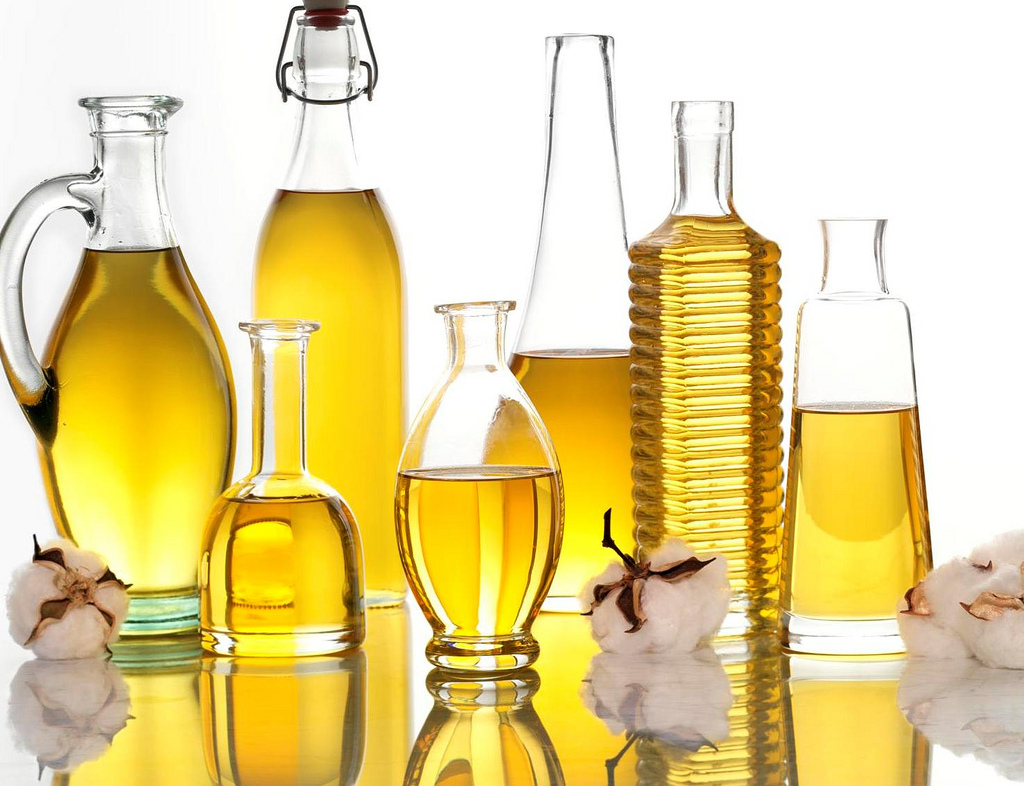
Storing Oils
To store oils properly, keep them in a cool and dark place to avoid them going bad. Rancid oils have an unpleasant taste and smell, so it's best to use them within 6 months of purchase. Polyunsaturated fats are most susceptible to going rancid due to their unstable double bonds. Monounsaturated fats are less vulnerable, while saturated fats are the most stable since they lack double bonds. Some oils can be stored in the refrigerator, especially saturated fats and certain "winterized" unsaturated fats that have been treated to prevent clumping and crystallization. If unsaturated oil turns cloudy in the refrigerator without winterization, it will return to its normal state when brought back to room temperature and is safe to use.
Cooking with Oils
Cooking oils have what's called a "Smoke Point," which is the temperature at which they start to break down and produce smoke. When this happens, the oil releases toxic fumes and free radicals that can be harmful to our health. Different oils have different smoke points, with some being better suited for high-temperature cooking methods like deep frying, sautéing, and toasting. Generally, the more refined an oil is, the higher its smoke point will be. Raw and cold-pressed oils, on the other hand, have lower smoke points and are better used in recipes that don't require high heat.
Flash point is the point at which the oil may erupt into flames and is higher than the smoke point. Never never go above the smoke point, or you may start a fire!
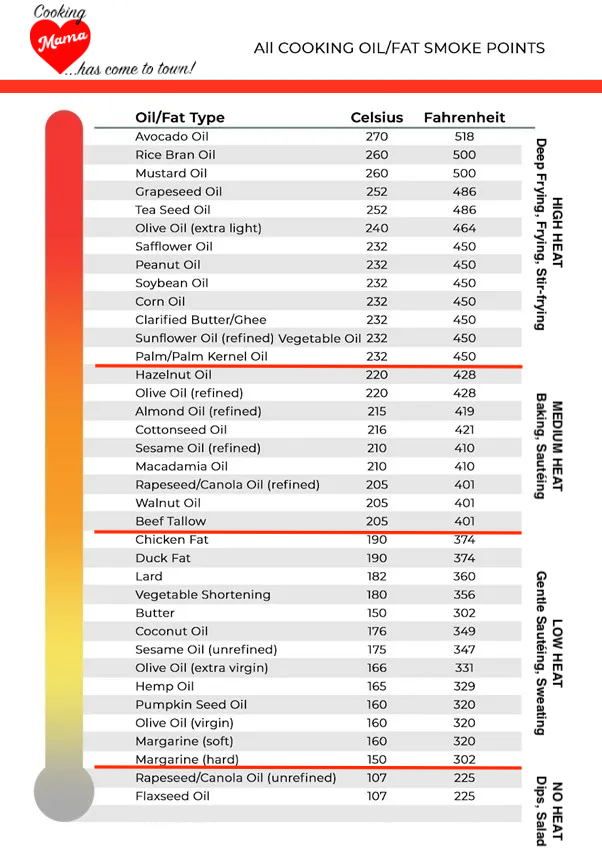
Emulsions
Emulsions, like salad dressings, often include oils to combine two liquids that don't naturally mix. To achieve this, we use emulsifiers. There are two methods for creating an emulsion:
- Mechanical Emulsion: This involves stirring, shaking, churning, or beating the liquids together. However, this type of emulsion is temporary and may separate over time.
- Emulsifiers: These are ingredients like egg yolk, mustard, spices, vegetable gum, or commercial emulsions. They are added to the mixture to create a longer-lasting emulsion that remains stable.
Nuts Nutrition Information
Nuts are a great source of healthy fats. Keep in mind the portion size though, because they are quite high in calories. View the below chart to see how different nuts compare.
